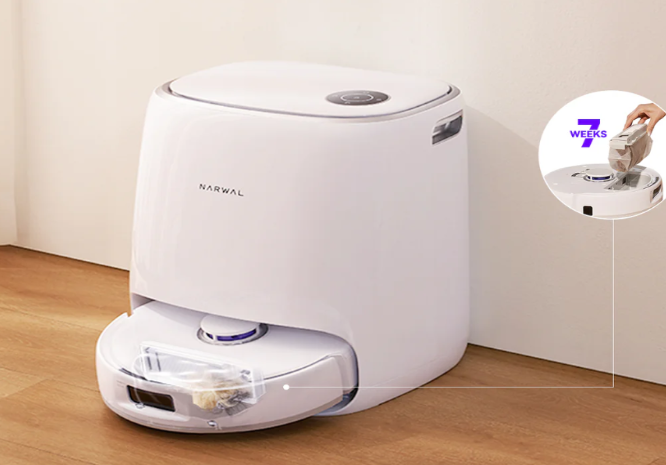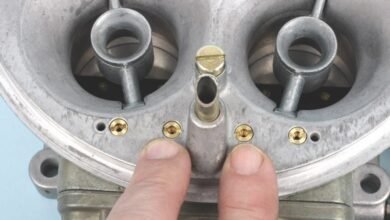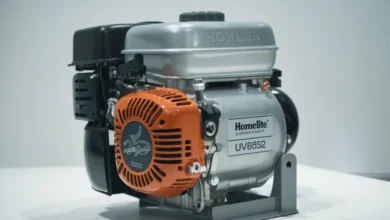How Often Should You Vacuum? The Science of Home Hygiene

Maintaining a clean home is essential for your health and well-being. One of the most important tasks in home hygiene is vacuuming. But how often should you vacuum? The answer depends on various factors, such as the size of your home, the type of flooring you have, and whether you have pets or allergies.
To create an efficient cleaning routine, it’s important to understand why vacuuming is necessary and how frequently it should be done. This article will dive into the science of home hygiene and help you determine the ideal vacuuming schedule for your living space.
The Importance of Regular Vacuuming
Vacuuming isn’t just about keeping your home looking tidy. Dust, dirt, and allergens accumulate on surfaces and in the air, which can affect indoor air quality. Regular vacuuming helps reduce the amount of dust and allergens in your home, improving the overall air quality.
Dust and debris build-up over time, and if left unchecked, they can cause respiratory problems, especially for those with allergies or asthma. By vacuuming regularly, you not only keep your floors clean but also help protect your health. Vacuuming also removes tiny particles that can damage flooring surfaces over time, preserving the longevity of carpets and hard floors.
How Often Should You Vacuum Each Area of Your Home?
How often you should vacuum depends on several factors, including the type of flooring and how much traffic an area gets. High-traffic areas, such as entryways and living rooms, should be vacuumed more frequently than low-traffic areas like guest bedrooms.
- Living Areas: These spaces typically see the most foot traffic and should be vacuumed at least once or twice a week. Vacuuming frequently in these areas helps to remove dirt and prevent it from being ground into the carpet fibers or accumulating on hard floors.
- Bedrooms: Since bedrooms are used daily but generally see less foot traffic, vacuuming once a week is usually sufficient. However, if you have allergies, you may want to increase the frequency to keep allergens like dust mites under control.
- Kitchens: Even though the kitchen may not have carpets, vacuuming is still necessary to pick up crumbs and other debris. A quick vacuum after cooking or at least once a week helps maintain cleanliness.
- Bathrooms: This is another area that requires regular cleaning, but a vacuum session once a week should suffice, depending on how much hair or dust collects on the floor.
For households with pets, it’s recommended to vacuum more frequently, as pet hair and dander accumulate quickly. In this case, vacuuming several times a week might be necessary.
Factors That Affect Vacuuming Frequency
Household Size
The larger your household, the more often you’ll need to vacuum. More people means more dust, dirt, and debris being tracked into your home. Larger families should aim to vacuum high-traffic areas several times a week to keep the home hygienic.
Pets
If you own pets, especially those that shed, vacuuming should be part of your daily or near-daily routine. Pets contribute to dust, hair, and dander, which can quickly accumulate on floors and furniture. Pet owners should vacuum carpets, furniture, and pet beds often to keep allergens in check.
Allergies and Asthma
For those with allergies or asthma, frequent vacuuming is essential. Dust mites, pollen, and other allergens can trigger symptoms, so it’s important to vacuum regularly to keep these allergens at bay. Consider using a robot vacuum to reduce allergens, making it easier to maintain a clean home without manually vacuuming as often.
Hard Floors vs. Carpets
Carpets tend to trap more dust and debris than hard floors, meaning they require more frequent cleaning. In contrast, hard floors, such as wood, tile, or laminate, are easier to keep clean and may only need vacuuming once a week in low-traffic areas. However, if you have area rugs on top of your hard floors, vacuuming should still be done regularly, as they can trap dust and allergens.
Can You Vacuum Too Much?
While frequent vacuuming is beneficial, there is such a thing as vacuuming too often. Over-vacuuming certain types of carpets can wear them out more quickly, especially if you use a powerful vacuum cleaner.
The best approach is to stick to a consistent schedule based on the needs of each area in your home. High-traffic areas need more attention, while low-traffic areas can be vacuumed less frequently.
Conclusion
Vacuuming is a crucial part of maintaining a clean and healthy home environment. The frequency with which you should vacuum depends on the size of your home, how much foot traffic it gets, whether you have pets, and if anyone in your household has allergies.
Keeping a regular vacuuming schedule helps protect your health by removing dust, dirt, and allergens from your living spaces. Whether you use a traditional vacuum or a robot vacuum, consistency is key to effective home hygiene.
By following these guidelines, you can ensure that your home stays clean, healthy, and comfortable for everyone living in it.

